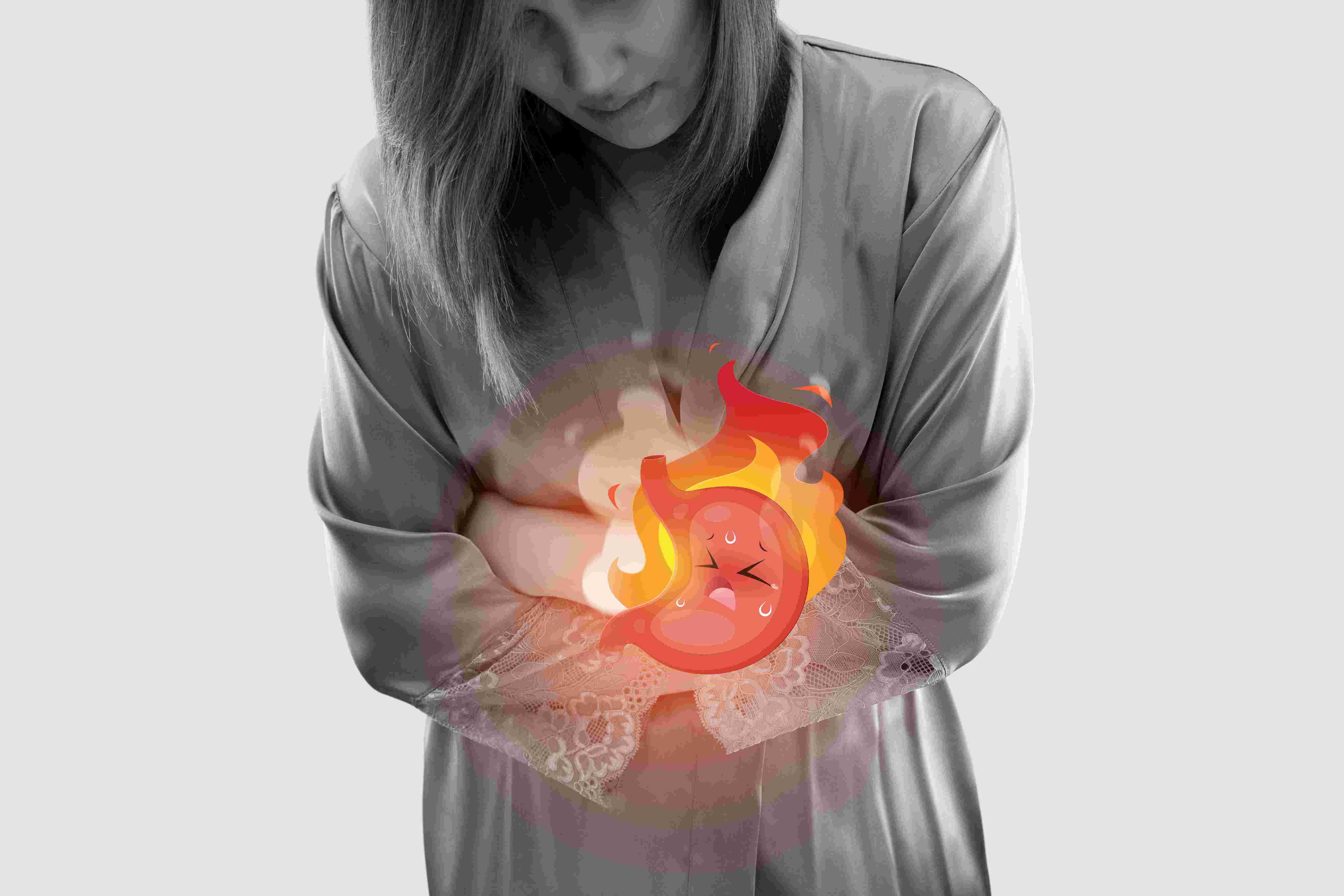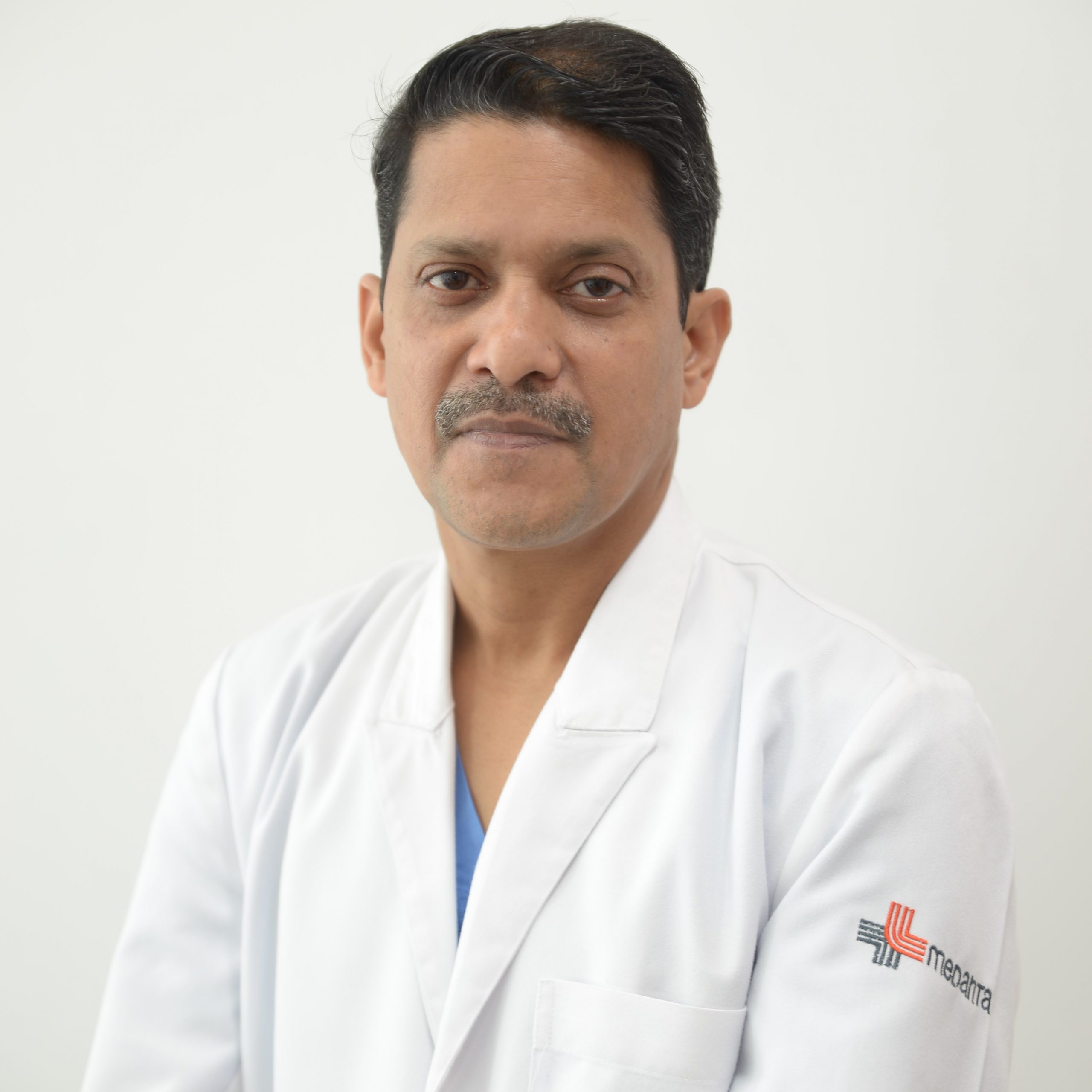
Gastroesophageal Reflux Disease (GERD): “Pills for life or Surgery”?
GERD, or gastroesophageal reflux disease, is a digestive condition that impacts the muscular ring that connects the esophagus and stomach. GERD occurs when stomach acid and digestive enzymes run backwards into the esophagus, the tube that transports food from your mouth to your stomach. The backward movement of stomach fluids is referred to as "reflux." The lining of the esophagus is inflamed by the caustic stomach fluids. The esophagus might be irreversibly damaged if GERD is not treated.
What are the common causes of GERD?
In India, the prevalence of GERD ranges from 7.6% to 30%, with most population studies showing a frequency of 10% or higher, and cohort studies showing a prevalence of 30% or more.
Some of the common predisposing factors causing GERD include:
- Obesity: Obesity puts more pressure on your abdomen, aggravating GERD symptoms. Although the exact link between GERD and obesity is unknown, obesity is thought to be both a cause and a risk factor for developing GERD.
- Medications: Certain medicines such as calcium channel blockers, Beta-adrenergic agonists, pain killers etc. may also aggravate or induce GERD symptoms.
- Smoking: Smoking causes heartburn in a number of ways, including lowering saliva production, slowing stomach emptying, and producing more stomach acid.
- Foods: Certain foods such as fatty or fried foods, citrus fruit and juices like orange or grapefruit can increase the amount of acid produced in the stomach.
- Pregnancy: Heartburn and acid reflux are more likely to occur during pregnancy. Muscles in the esophagus push food into stomach more slowly during the first trimester, and the stomach takes longer to empty. This allows the body to absorb nutrients for the foetus for longer, but it can also cause heartburn.
Watch GERD (Acid Reflux): Causes, Symptoms, Treatment | Jay Prabha Medanta Patna - YouTube ?
What are the symptoms of GERD?
The following are the most common signs and symptoms:
- Primary symptoms: Heartburn and regurgitation
- Alarming symptoms: Difficulty in swallowing, weight loss, GI bleeding
- Coughing
- Pain in the chest
- Hoarseness and sore throat
How Gastroesophageal Reflux Disease (GERD) Is Diagnosed?
When you have heartburn and regurgitation, gastroesophageal reflux disease (GERD) can usually be diagnosed with simply a physical exam and a review of your symptoms history. On the other hand, if you don't, and your symptoms aren't improving with treatment, or your healthcare practitioner wishes to rule out any potential concerns, you may need tests such as an upper endoscopy, ambulatory acid (pH) monitoring, esophageal manometry, or a barium swallow radiograph.
How is GERD treated?
The primary treatment options are:
- Dietary and lifestyle adjustments
- Medication
- Surgery
Dietary and lifestyle adjustments are believed to improve GERD symptoms
Limiting meals that cause reflux is usually the first step in minimizing GERD. Chocolate, coffee, fried meals, peppermint, spicy foods, and carbonated beverages are common "trigger foods," however they varies from person to person.
In addition to avoiding dietary triggers, lifestyle adjustments can help you manage your GERD symptoms. For example, instead of a few substantial meals each day, eat smaller and more frequent meals throughout the day. This helps in digestion and can help prevent heartburn.
Acid-reducing medication: proven by evidence
The following are examples of prescription-strength GERD treatments:
- H-2 receptor blockers. Although these drugs are generally well tolerated, long-term usage may raise the risk of vitamin B-12 insufficiency and mineral loss from bone resulting in fractures.
- Proton pump inhibitors- Gold standard of medical treatment with long term acid suppression and significant improvement in symptoms and quality of life. Although these drugs are normally well tolerated, they can cause diarrhoea, headaches, nausea, and vitamin B-12 deficiency and bone demineralization.
- The lower esophageal sphincter is strengthened using medication. It is proposed than proved. Baclofen may help with GERD by reducing the frequency of lower esophageal sphincter relaxations. Fatigue and nausea are possible side effects.
Surgery
Most cases of GERD can be successfully treated with a combination of lifestyle changes and medicines however they need to be pursued for life while surgery is a ONLY reasonable option for long term symptom control, make you free from medications in over 90% and can potentially prevent the ongoing damage of the lower esophagus from acid which may continue despite medical treatment AND if not checked on time it may lead to development of cancer in lower esophagus.
Indications are:
- Heartburn that persists despite medicine and lifestyle changes
- Failure of medical management
- Side-effects of medical management
- Physical change of lower esophagus cannot be prevented with medicines
Antireflux Operation
Most of these surgeries are performed laparoscopically or using robotic surgery. The Nissen (360-degree) fundoplication is the most common antireflux procedure. To produce an artificial sphincter, a part of the top of the stomach is grabbed and looped around the lower end of the esophagus and lower esophageal sphincter. Stomach acid does not back up into the esophagus because of this device. Another alternative is partial fundoplication, which involves wrapping the stomach only partially around the esophagus.
Following the procedure you stay in hospital for two days, resume office within 5 days with normal return of activity and life OFFCOURSE without reflux.
If you've been diagnosed with GERD, Medanta's specialists will work with you to develop a treatment plan that is right for you. Depending on where you are with the issue, OTC medications, prescription medications, and even surgery are all alternatives.

